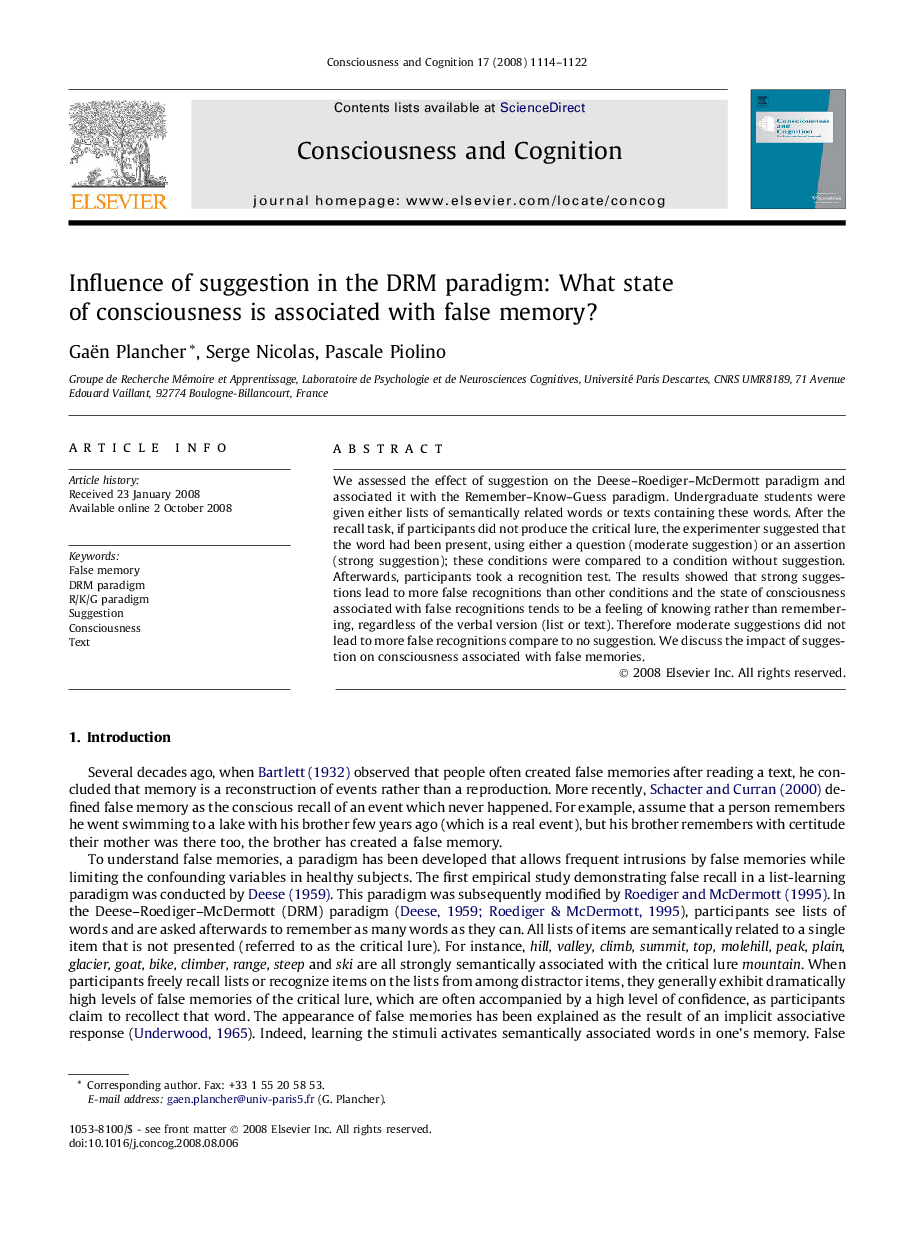| Article ID | Journal | Published Year | Pages | File Type |
|---|---|---|---|---|
| 928000 | Consciousness and Cognition | 2008 | 9 Pages |
We assessed the effect of suggestion on the Deese–Roediger–McDermott paradigm and associated it with the Remember–Know–Guess paradigm. Undergraduate students were given either lists of semantically related words or texts containing these words. After the recall task, if participants did not produce the critical lure, the experimenter suggested that the word had been present, using either a question (moderate suggestion) or an assertion (strong suggestion); these conditions were compared to a condition without suggestion. Afterwards, participants took a recognition test. The results showed that strong suggestions lead to more false recognitions than other conditions and the state of consciousness associated with false recognitions tends to be a feeling of knowing rather than remembering, regardless of the verbal version (list or text). Therefore moderate suggestions did not lead to more false recognitions compare to no suggestion. We discuss the impact of suggestion on consciousness associated with false memories.
